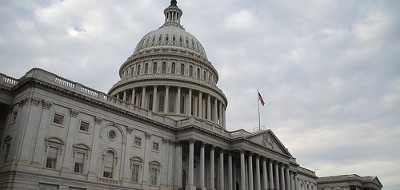The Autistic Self Advocacy Network (ASAN) applauds the House of Representatives’ passage of the Justice in Policing Act of 2020, H.R. 7120, as a first step in the fight to ensure that Black people, especially Black disabled people, are no longer victimized, assaulted, and murdered by our criminal justice system. Although we continue to believe that improvements could make the bill better, ASAN will continue to work within the broader civil rights community in an effort to strengthen the bill before its passage by the Senate.
The bill would create a long-overdue national use of force standard for police officers, which prohibits deadly force in all but the most extreme circumstances. Non-deadly but still significant force (called “less lethal force” in the bill) would also be regulated. Crucially, the bill includes restriction on “qualified immunity,” a doctrine that shields law enforcement from liability when they violate people’s civil rights. This will make enforcing these standards and holding police officers accountable for violence much more possible than it has been in the past.
The bill establishes a police misconduct registry to keep track of police officers that use excessive force and prevent them from being rehired by a new department. The bill would prohibit no-knock raids by police in drug cases, although it would not prohibit quick-knock raids. It would limit the transfer of dangerous military equipment to police officers–equipment that never should have been in their possession in the first place–and would encourage states to ban the use of life-threatening chokeholds. It would ban racial profiling nationwide, require the establishment of training measures, policies, and practices designed to prevent racial profiling, and allow individuals to sue law enforcement agencies whose officers racially profile community members. And, it would require police officers to wear body cameras in most circumstances. The bill would also require that state law enforcement agencies report use of force incidents to the federal government including: the characteristics of the person on whom force was used (including race, ethnicity, gender identity, age, English proficiency, disability, housing status, and other relevant factors), why force was necessary, who was involved in the incident, and a description of the incident. Law enforcement agencies must also submit data on traffic stops, pedestrian stops, body searches, and deadly use of force to the Attorney General. These measures – along with a diverse and comprehensive set of grants, accountability measures, and bill provisions that would increase oversight over police misconduct at the federal and state levels – will reduce violence and death at the hands of the police, including anti-Black violence.
We remain concerned that some provisions fall short of what is needed, particularly with respect to the school-to-prison pipeline. Although the bill would fund grants for community-based organizations to create uniform standards for school resource officers – police officers in schools – it does not eliminate police presence in schools. The presence of school resource officers in schools exacerbates the school-to-prison pipeline. Their actions have caused incalculable damage to the lives of Black and brown youth, particularly youth with disabilities. The bill also would fail to prohibit quick-knock warrants in drug cases and would fail to fully ban the use of military equipment by police. Many of the bill’s provisions, such as the use of body cameras, would require greater oversight to prevent misuse than the bill offers. While the bill would eliminate qualified immunity for police officers, we believe it should also eliminate qualified immunity for all other government employees who violate civil rights, such as correctional officers. Finally, this bill funnels more money to police departments across the country, rather than significantly shrinking the resources used to support police violence. ASAN will continue to work with Congress to ensure real change to policing is not undermined by these omissions. However, we agree with other civil rights organizations that the bill overall is an important step forward.
ASAN commends Congress for its efforts with this legislation. We recognize that this bill represents just one step on the path to justice, and we reiterate our commitment to ensuring that racist, anti-Black, and ableist police violence is eliminated. Black lives matter. For more information on ASAN’s positions on police reform and racial justice, please contact Sam Crane, our Legal Director, at scrane@autisticadvocacy.org.
The Autistic Self Advocacy Network is a 501(c)(3) nonprofit organization run by and for autistic people. ASAN was created to serve as a national grassroots disability rights organization for the autistic community run by and for autistic Americans, advocating for systems change and ensuring that the voices of autistic people are heard in policy debates and the halls of power. Our staff work to educate communities, support self-advocacy in all its forms, and improve public perceptions of autism. ASAN’s members and supporters include autistic adults and youth, cross-disability advocates, and non-autistic family members, professionals, educators, and friends.

